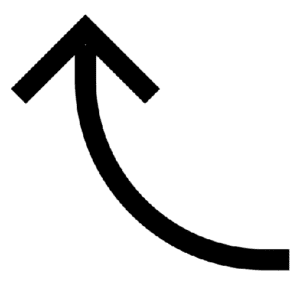
Japanese Keyword Hack

Japanese Keyword Hack: Prevention, Detection, and Recovery
In the ever-evolving landscape of cybersecurity, the Japanese Keyword Hack has emerged as a potent threat to website owners and users alike. This deceptive technique involves manipulating search engine results by injecting unrelated keywords, often in Japanese, into websites. The goal? To deceive search engines and boost the rankings of compromised websites. In this comprehensive guide, we’ll delve into the Japanese Keyword Hack, its inner workings, and, most importantly, how to protect your website from it.
Understanding the Japanese Keyword Hack
What is the Japanese Keyword Hack?
The Japanese Keyword Hack is a cunning technique employed by hackers to manipulate search engine results. By injecting a multitude of unrelated keywords into a website’s content, meta tags, and hidden sections, hackers aim to trick search engines into associating the compromised website with these keywords. The result? An elevation in the website’s search engine rankings for queries related to these injected keywords.
Japanese Keyword Hack How Does it Work?
This technique operates in several key steps:
- Website Infiltration: Hackers gain unauthorized access to a website, often exploiting vulnerabilities in content management systems or plugins.
- Keyword Injection: Once inside, the hackers flood the website with unrelated keywords, frequently in Japanese, designed to deceive search engines.
- Search Engine Manipulation: The injected keywords aim to mislead search engines, resulting in the compromised website appearing in search results for queries related to the injected keywords.
- Click Fraud and Malicious Content: In some cases, the hackers may use the compromised website to promote malicious content or engage in click fraud to boost rankings.
Japanese Keyword Hack Signs and Symptoms
Recognizing the Signs
Detecting a Japanese is vital to minimizing its damage. Common signs include:
- Sudden drops in search engine rankings.
- Unusual traffic patterns, including a spike in visits from foreign countries.
- User complaints about unusual content on your website.
Why Detecting it is Crucial
Early detection is essential to prevent further harm to your website’s reputation and user trust. Ignoring a Japanese Hack can lead to severe consequences, including blacklisting by search engines.
Prevention and Website Security
Securing Your Website
Proactive website security is your first line of defense. Ensure your website is secure by:
- Regularly updating your CMS, plugins, and themes.
- Using strong, unique passwords and enabling two-factor authentication.
- Implementing a firewall and intrusion detection system.
Using Security Plugins
Consider employing security plugins and tools that offer:
- Malware scanning and removal capabilities.
- Real-time monitoring for suspicious activities.
- Firewall protection against unauthorized access attempts.
Regular Audits and Monitoring
Frequent website audits and monitoring are crucial to detecting and mitigating threats promptly. Implement these best practices:
- Schedule routine security audits, scanning for vulnerabilities.
- Monitor server logs and traffic patterns for anomalies.
- Subscribe to security alerts and notifications.

How to Fix the Japanese Keyword Hack
Immediate Steps
If you suspect a Japanese Hack, take these immediate actions:
- Isolate the compromised website to prevent further damage.
- Change all passwords and access credentials.
- Backup your website for potential recovery efforts.
Recovery Process
To recover your website:
- Remove injected keywords and malicious content.
- Scan your website for malware and vulnerabilities.
- Update all software, plugins, and themes.
- Strengthen your website’s security measures.
Consulting Professionals
In some cases, it’s best to seek professional help:
- Engage a cybersecurity expert to conduct a thorough security audit.
- Consider hiring a professional malware removal service.
- Assess the possibility of legal action against the hackers.
Prevention is Key
Staying Proactive
Prevention is always better than cure. Stay proactive by:
- Continuously monitoring your website’s security.
- Training your team or contributors in cybersecurity best practices.
Japanese Keyword Hack User Education
Educate your team and contributors about cybersecurity:
- Provide training on identifying and reporting security threats.
- Offer resources and guidelines for safe web practices.
Conclusion
The Japanese Hack is a formidable threat that can have severe repercussions for website owners and users. By understanding its workings and implementing proactive security measures, you can safeguard your website from this deceptive technique. Remember that early detection and swift action are paramount to minimizing the damage caused by the hack. Stay vigilant, keep your website secure, and educate your team to ensure a safer online presence.
FAQ 1: What is the Japanese Keyword Hack?
The Japanese Hack is a malicious technique used by hackers to manipulate search engine results. They inject unrelated keywords, often in Japanese, into a website to deceive search engines and boost rankings.
FAQ 2: How can I recognize if my website is affected by the Japanese Keyword Hack?
Common signs include sudden drops in search engine rankings, unusual traffic patterns, and user complaints about unusual content on your site.
FAQ 3: Why is early detection of the Japanese Keyword Hack crucial?
Detecting it early minimizes damage to your website’s reputation and user trust. Ignoring it can lead to blacklisting by search engines.
FAQ 4: What are some preventive measures against the Japanese Keyword Hack?
Preventive measures include regular website security updates, strong passwords, two-factor authentication, firewall implementation, and using security plugins.
FAQ 5: What are some recommended security plugins for my website?
Consider plugins that offer malware scanning, real-time monitoring, and firewall protection. Examples include Wordfence and Sucuri Security.
FAQ 6: How do I conduct a security audit of my website?
Schedule routine audits to scan for vulnerabilities, monitor server logs, and subscribe to security alerts and notifications.
FAQ 7: What should I do if I suspect my website is hacked by the Japanese Keyword Hack?
Isolate the compromised website, change all passwords, and backup your site for potential recovery efforts.
FAQ 8: How can I recover my website from a Japanese Keyword Hack?
Recovery involves removing injected keywords and malicious content, scanning for malware, updating all software, and enhancing security measures.
FAQ 9: When should I consult cybersecurity professionals for help?
Consider seeking professional assistance when the hack is extensive or when dealing with persistent threats. Cybersecurity experts and malware removal services can help.
FAQ 10: How can I educate my team about cybersecurity to prevent future attacks?
Offer training on identifying and reporting security threats and provide resources and guidelines for safe web practices to ensure everyone on your team is vigilant about security.
Appendix
For additional resources and tools to enhance your website’s security, consult the following:


